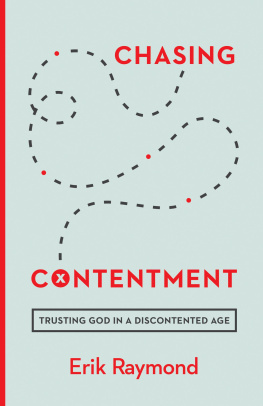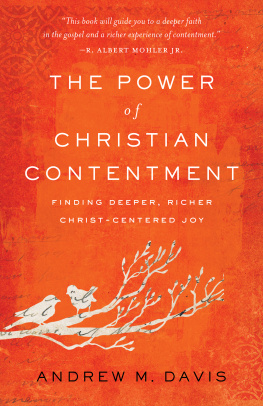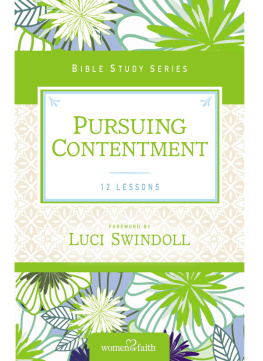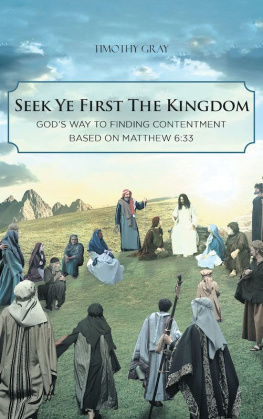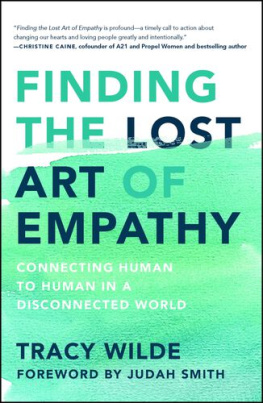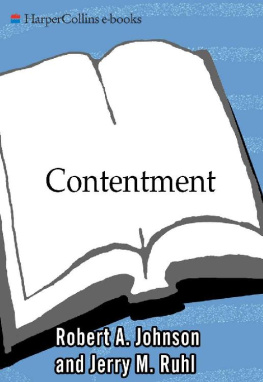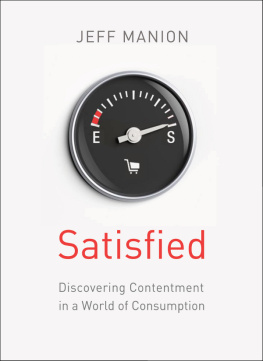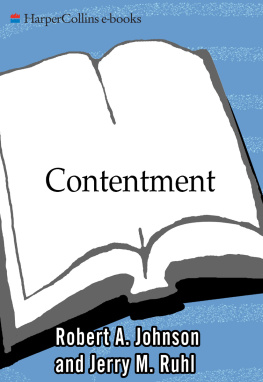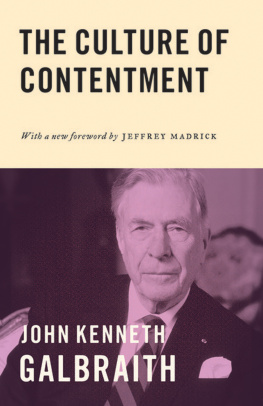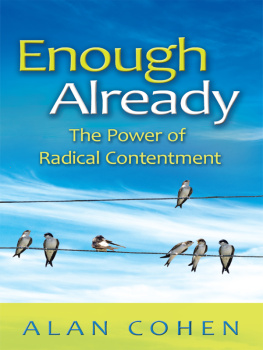Table of Contents
Landmarks
When the Serpent approached Eve in the garden of Eden, he found a woman who was content. She had never felt the wandering thoughts of something better, because she rested in the One who was best. The person, promises, and provision of God were sufficient to satisfy her.
But the Serpent was crafty. How did he display his craftiness? It was through his cunning and deceitful charm that he began to lure Eve away. He packaged his lies in such a way that they looked like truth. He made choosing death seem like such an appealing decision that Eve actually thought it would make her happy.
We see his tactics when we read in Genesis 3:1 that Satan attacked Gods word: Did God actually say... ? First Satan attacked the clarity of Gods word, implying that Gods word could not be known. Then he attacked Gods truthfulness: You will not surely die. By attacking the truthfulness of Gods word, Satan was saying that God himself cannot be trusted. And finally, he attacked Gods motive: God knows that when you eat it you will be like God, knowing good and evil. Satan suggested that God had bad intentions; he was keeping something from her. The fork - tongued liar invited Eve to judge Gods Word and Gods character. For the first time in the history of the world, God was being scrutinized.
But the Evil One did not stop there. Sensing that his trophy was within reach, he encouraged Eve to assess the fruit on the forbidden tree. She began to evaluate it and convinced herself to eat it. Seeing that it was good for food, and that it was a delight to the eyes, and that the tree was to be desired to make one wise, she took of its fruit and ate, and she gave some to her husband, who was with her, and he ate (Gen. 3:6).
Here we are confronted with the plan of Satan to belittle Gods glory by luring people into sin. He tempted her and she fell. The shocking detail that we often forget about this passage is that Adam and Eve did not want for anything! It wasnt like they were starving; the entire world, but for one tree, was their pantry. They werent lacking beautiful surroundings; every scene was a glorious landscape of visual delight. And they truly had wisdom, for they feared and obeyed God (Prov. 9:10). But, for the first time ever, Gods human creations strayed from Gods lap, where they had previously sat like children embraced by their welcoming father, and they wandered away into the realm of wanting.
Satan had deceptively packaged death in a shiny wrapper and sold it as life. And the crafty Serpent prevailed. He seized upon an opportunity to unfasten our first parents dependence on God. There was first a breach, and then he opened it wide. Adam and Eve turned away from God and his word, seeking to be satisfied in creation rather than God, their Creator (Rom. 1:25). This is what it means to be discontent. Satan came with his slick promises to give them something they did not need. But instead of meeting any needs, he led them away from God, who alone can meet their needs.
This is Satans agenda. It has not changed much since Eden. He is as tireless as ever, dangling the false promises in shiny wrappers before men, women, and children and watching them take and eat.
As we know, the story goes on. Adampreviously silent, even while standing byalso ate the fruit. By this disobedience to God, Adam and all humanity after him now came under the curse of sin. Yet God pursued the shamed couple. He came to them with the gracious words of a God who is both Savior and Judge. He made clothes to cover them and then announced a curse upon the Serpent, the people, and the rest of creation. The indication is that this altercation between our first parents and the Serpent was simply round one in an ongoing struggle with sin and its consequences. There would be many more days of difficulty ahead.
Life now would be much harder. There would be tears, death, guilt, and shame. The Serpent would be active amid this new, dark, and drastically different world. So God ushered the couple out of the garden to go and face this new world together, but not alone. He went with them, speaking words of truth with his promise of rest and restoration abiding over them. But now, as they went, they would carry the memory of what they had before, like a shadow over their present experiences. They would hunger to be back in Eden and have their souls satisfied in God alone.
In the meantime, humanity would have to deal with the god of this world. Whether young or old, all of the sons and daughters of Adam and Eve would be faced with the shiny wrappers of temptation.
Recently my young daughter was captivated by what appeared to be junk in nice wrapping paper. My wife had gone to a fabric store to get a few items when our six -year- old saw a box covered with a picture of Elsa, plenty of snowflakes, glitter, and all the requisite sparkles to get her attention. She ran up to the box and announced with all the urgency she could muster, I need this. As my wife took a look at it, she had to laugh. Beyond the glitter and sparkles there was a small plastic curling iron, a blow - dryer the size of her hand, and tiny plastic hair rollers. The price tag for this plastic replica of beauty supplies was twenty - five dollars.
Zo didnt go to the store with Mom considering a purchase of model hair dryers, but when she saw Elsa and the sparkles, lust was conceived. Her desire to be like her two older sisters was aroused at the sight of that glistening box. Can you imagine what her reaction would have been if my wife had bought her that nonworking toy? Perhaps you have seen the look on a childs face when she realized a toy she wanted did not live up to expectations. Perhaps you yourself have experienced the letdown of discovering that something you desired did not match the hype. Yes, as the children of Adam and Eve, we like our shiny wrappers.
The God of This World
We live in the midst of a world that is not what it once was and with hearts craving to be back in Eden. Meanwhile, we are reminded by preachers that we are not to love the world. But preachers (and others) have to be careful, thoughtful, and clear when they say things like this.
Jayber is the town barber. He goes to Sunday service because he likes the company of the women at church, but he despises hypocrisy in the preaching. He repines over the weekly prattling about how we should hate the world. Jayber finds it ironic that, after service, the preacher enjoys several helpings for lunch. Surely, Jayber thinks, this preachers hatred for the world is a bit inconsistent, as it does not extend to all things involving biscuits and chicken!
So, what does the Bible mean by the word world ? There are a number of different ways to answer this question. A particular passage may use the word world to refer to all the people living. Sometimes it refers specifically to non - Jewish people. Other times, world may refer to all of the geographic space on the planet. Still other times, it refers to the entire universe.
But there is another sense in which the word world is used. Often when the Bible speaks negatively about the world (e.g., Do not love the world, 1 John 2:15) it is referring to the world system. Scripture tells us that Satan is the god of this world (2 Cor. 4:4) and therefore the commander in the global rebellion. Lets not forget that ultimately this undercurrent of rebellion is against God. It is a religious system of opposition to the true God, and it exists with the mission statement of belittling Gods glory through the promotion of lawlessness.
When we hear of a tragedy and act of terror, we may briefly comfort ourselves with the fact that the incident took place far away. However, while terrorism may strive to topple governments, we need to understand the sense in which Satan is the government. As weve observed, he is referred to as the god of this world (2 Cor. 4:4; Eph. 2:13). This entire world, in this sense, is under the rule and sway of the Evil One. As Christians we do not despair of this fact because we understand that even in his malevolence Satan cannot operate without the expressed permission of our good and sovereign God. As in the story of Job, he cannot move without sanction from heaven. This truth, however, does not diminish the fact confirmed by Scripture and experience that the world itself is bent against God.

